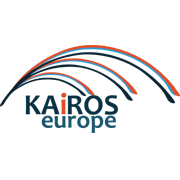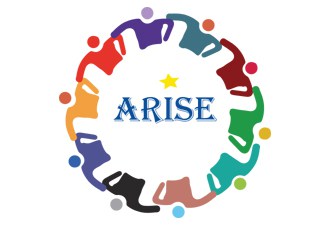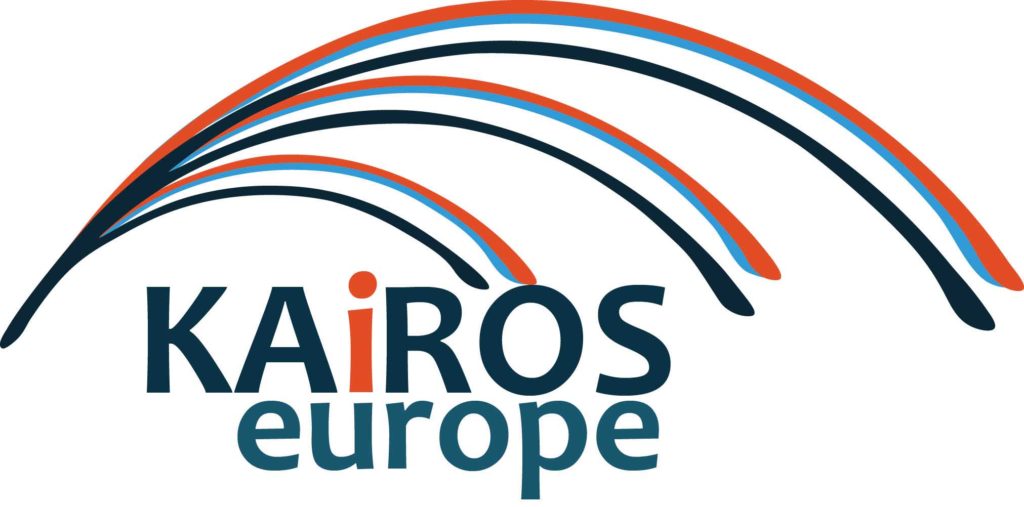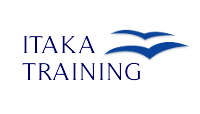Today we would like to share another entry written by one of our participants. Irina took part in the ARISE Project in 2018. During her time in Italy she learned about how refugees and migrants are welcomed in Italy and what tools are available for them. Thank you very much Irina for sharing this entry with us!
- What is social inclusion?
- Language as one of the effective tools for social inclusion
- Language training- best practice in UK
- Language training-best practice in Italy
- Conclusion
1. What is social inclusion?
Social inclusion is a process by which efforts are made to ensure equal opportunities for all. The multi-dimensional process aimed at creating conditions which enable full and active participation of every member of the society in all aspects of life, including civic, social, economic, and political activities, as well as participation in decision making processes.
Social inclusion may also be interpreted as the process by which societies combat poverty and social exclusion.
Social inclusion aims to empower poor and marginalized people to take advantage of burgeoning global opportunities. It ensures that people have a voice in decisions which affect their lives and that they enjoy equal access to markets, services and political, social and physical spaces.
2.Education at all levels is a key part of the integration process for migrants.
Language learning is one of the most effective tools for social inclusion which make easier transitional process for all parties involved.
Learning a language is often the first step towards becoming part of a new country, culture and community. Helping migrants speak the local language is vital for their entry into the job market, further or higher education, better cultural understanding and social involvement.
Language class is a particularly important site for migrants to deliberate about issues that directly affect them; it is a public space for dialogue about emotional impact migrants experienced in their everyday lives.
Language proficiency enables refugees and migrants to participate in the cultural life of the host society, integrate in the social fabric and acquire a sense of belonging.
Research shows that students who do not speak the language of instruction at home perform at a lower level in reading than their problem-solving skills. Language programmes should be developed, taking into account the age and needs of migrants.
3. Language training- best practice in UK
The current government’s requirement to learn English is not matched by provision and support. A recent report by the Greater London Authority highlights the need to improve support given to low-paid, low-skilled workers in ESOL. Ten barriers to learning English were identified as an outcome of the research, among them information about suitable provision, cost, time, location, lack of childcare and lack of learning opportunities at work
However, there are some innovative approaches to using learning to promote integration in the UK, in particular looking at those that focus on more challenging contexts and which are likely to be of interest for practitioners engaged in this field.
Language development through empowerment: Reflect ESOL (English for Speakers of Other Languages) was developed in the UK and takes a different approach to language support as part of the process of integration. Based on the work of the Brazilian educationalist, Paulo Freire, it uses a structured technique to empower learners to be more open and have more input into their own learning.
Holistic approach to supporting the social, educational and economic integration: The Bridges Programmes agency in Glasgow, Scotland, provides specialist support to help people into work, education and training. The support programme includes ‘life-skills’ support for refugees, work-focused employability support building on individuals’ previous skills and experience, and work placements.
New technologies to support learning and integration: The UK’s MoLeNET programme uses handheld digital technologies to support learning. Several of its projects were targeted at migrants, asylum seekers and refugees (particularly in connection with learning English and using peer learning) and a study that accompanied the MoLeNET programme.
Using a ‘Conversation Club’ to assist integration through language: The Conversation Club in Sheffield, England, combines support to learn and practice language skills with ‘extended activities’ such as weekend walks, museum visits, football, and cinema visits. The aim is to reduce social isolation and promote integration using language learning as the basis for a range of activities which are planned by the learners.
4. Language training-best practice in Italy
There are two main provision designs the institutions of Extraordinary Measures for Asylum Seekers Reception in Italy- CAS and SPRAR.
CAS is extraordinary Reception centers (profitable and non-profitable) which operate without involving municipalities.
CAS is conceived to obviate the lack of available places in the ordinary reception facilities in case of massive and frequent arrival of migrants. Those facilities are designed by the Prefectures, in agreement with cooperatives, associations and hotels in accordance with public contracts regulations, with the local authorities being informed.
There is no clear information and regulations about their management, the authorities which own them and about the duration of stay. They are supposed to be temporary recepion centres, but many CAS in Italy have become centres of second reception (so according to when and where these centres are located, they can serve both as “first reception” and “second reception” centres).
SPRAR
The Protection System for Asylum Seekers is established by the Department for Civil Liberties and immigration of the Ministry of Interior and operated by ANCI (the National Association of Italian Municipalities)
SPRAR is a national network of 382 municipalities (Protection System for Refugees and Asylum Seekers).
In order to reduce the concentration of migrants in big centres and improving social inclusion, the Italian authorities have been promoting a wide reception system that will host migrants in small communities throughout all the country.
Besides food and shelter, those centres must provide other services such as linguistic and cultural mediation, Italian language courses, vocational training and legal assistance so as to facilitate integration.
Learning Italian language is encouraged among minor and adult migrants and Intercultural education is promoted, so to improve the acceptance of cultural and linguistic diversities.
Foreign minors in the Italian territory are subject to free-of-charge compulsory education, and all the provisions in force in the area of right to education, access to educational services and participation in the school community apply to them (including children of asylum seekers)
There is a minimum 10hrs per week language tuition is provided, however, adult learners can study other subjects along with language such as science, math and history. Migrants with established immigration status (approved) will receive more hours of language classes. Newly arrived refugees and asylum seekers from the age of 16 who are granted a temporary residence or work permit and have obligation to attend a course of Italian and sit a Certification exam in order to get a permanent settlement permit.
Immigrants who have concluded language training may take a language test which issued for admission to further education, vocational training and employment.
Italian language is taught according to a communicative approach, taking into account their country and culture of origin. Teachers in class motivate learners by proposing topics relevant to their cultural background, which at the same time can be adapted to their new context and needs. Controlled or semi-controlled activities are proposed and gradually get them used to free speaking and exchange of personal views on daily routine situations. Authentic though adapted material is used, lecture formats alternate class practice, group-works, pair-works, role plays, conversations and listening activities.
Unfortunately, there is no much funding available to support certified language classes for migrants in Italy .With employment centres being disconnected with training centres or public school it seems to be very difficult to create a clear signposting or referral channels for migrant seeking additional language classes.
The national regulations lack specific indications and financial support for migrants’ integration in the schools, leaving all responsibilities to local authorities which have to cope with limited budget and personnel due to policy cuts in education.
As a consequence the quality of services for integration strongly depends on local decisions and tools.
5.Conclusion
Through ESOL, people new to the UK have access to an experience that helps them grow in confidence and learn about living successfully in the UK – the people, the customs and rituals and official systems – as well as supporting them in developing their language skills.
At the same time they interact with and learn about people of all backgrounds, with the opportunity to break down cultural barriers and stereotypes. For learners, their ESOL provider can be an environment of safety and understanding where they are able to build friendships and connections with people in similar situations, motivating them to keep learning and keep making the effort.
However, recent cuts in funding ESOL classes and constant lack of capacity despite the common understanding of the importance of ESOL provision are slowing down process of migrants’ inclusion; prevent refugees from gaining access to other areas of support such as gaining employment and community participation.
Italian way of delivering language classes for migrants should have direct connection with employment centres as it has been done in UK.
Migrants should have compulsory number of language classes per week in order to receive benefits. It will improve classroom attendance and training outcome overall.
Germany already made compulsory language / integration courses and asylum seekers who are not attending classes will lose access to government benefits.
On a local basis, humanitarian organizations, institutions and volunteers organizations represent the best and most effective examples of actions aiming at the improvement of Italian language skills for migrants in order to promote and enhance their full social and working integration on the local communities enabling them to live in dignity, take an active part in society and get to know how Italian main institutions and social services work.
There are large numbers of adults who wish to make a positive contribution to their new communities and who have a clear need for support in developing their understanding of the host society and its language, deemed essential to successful integration. Support for migrants to learn the host language should be central to any policy that aims to meet the challenge and to help them to contribute to society and to the economy.
There are now more than 50 million people in Europe living in a country other than the one in which they were born. Language education, and in particular the learning of the language of the host country, has a major role to play in supporting the integration of young and adult migrants into education systems, the labour market and society at large. This integration in turn helps create a more socially cohesive Europe.
The views and opinions expressed in this article are those of the authors and do not necessarily reflect the official positions of Kairos Europe, its partners or their employees.




